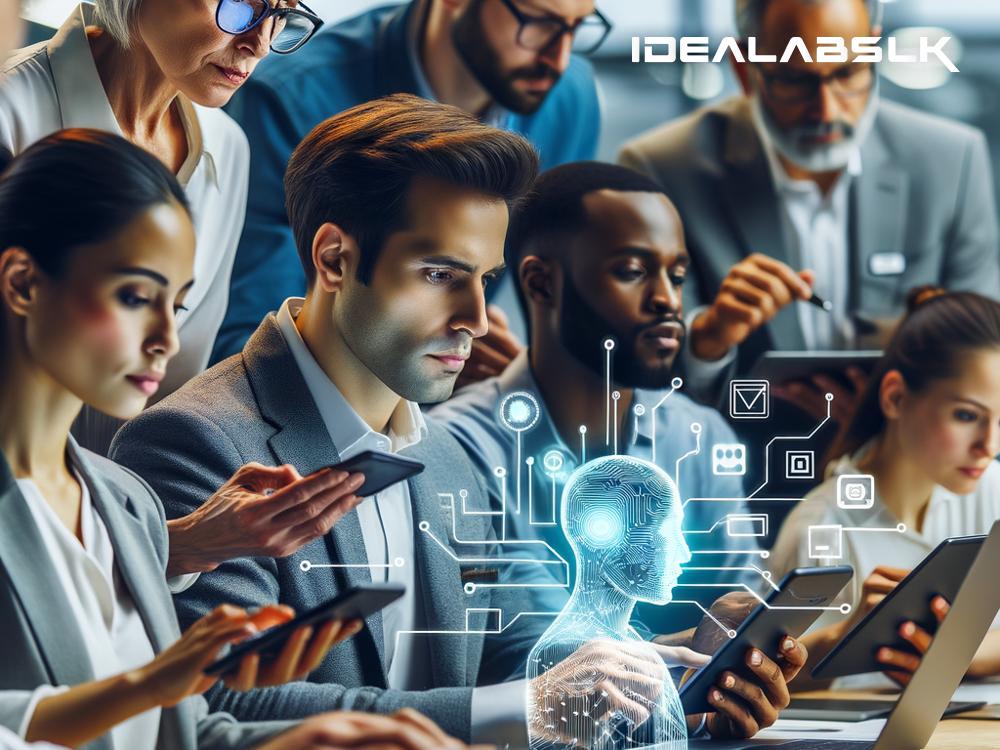Unlocking Seamless Productivity: How AI Powers Multi-Device Collaboration
In today's digital age, the landscape of how we work and play is in constant flux, shifting towards an era where our devices aren't just solitary islands of technology but part of a large, interconnected ecosystem. This change is largely powered by Artificial Intelligence (AI), a revolutionary force enabling devices to collaborate in ways we never thought possible. This collaboration is not just limited to professional environments but extends to our homes, creating a seamless experience across all our smart devices, from smartphones and laptops to smart home appliances.
The Magic Behind Multi-Device Collaboration
Imagine entering your home after a long day of work; your smartwatch sends a signal to your thermostat to adjust the temperature to your liking, your smart speakers begin to play your favorite tunes, and your smart lighting adjusts to create a relaxing atmosphere—all without you lifting a finger. This scenario isn't a peek into a distant future; it's the present, powered by AI.
AI is like the brain of multi-device collaboration, allowing devices to communicate, learn from your habits, and make decisions to serve you better. But how does it manage to do that? Let's break it down:
-
Communication: AI enables devices to talk to each other efficiently. When your alarm goes off in the morning, it can trigger your coffee maker to start brewing your morning coffee, for example. This is possible through AI algorithms that understand and manage the complex web of interactions between devices.
-
Learning: AI systems can learn and adapt over time based on your behavior and preferences. If you tend to work at your desk around noon, your smart lighting can automatically adjust to ensure optimal lighting conditions, thanks to AI understanding and anticipating your needs.
-
Decision Making: Beyond learning and communicating, AI can make autonomous decisions to enhance convenience. If your smart home system notices you're not home and it's about to rain, it could automatically close your windows, ensuring your home stays dry.
The Benefits of AI-powered Multi-Device Collaboration
This collaboration brings about numerous benefits, making our lives more convenient and our work more efficient.
-
Enhanced Productivity: With devices taking over mundane tasks, you have more time to focus on what truly matters. You no longer have to fiddle with settings on each device; AI optimizes them for you, boosting your productivity.
-
Personalization: AI tailors your device ecosystem to fit your unique needs and preferences, creating a truly personalized experience. Whether it's recommending a movie based on your viewing habits or adjusting the temperature based on your comfort, AI ensures your devices know what you want, sometimes even before you do.
-
Energy Efficiency: Smart devices, guided by AI, can significantly cut down energy use. For instance, AI can optimize the use of heating, ventilation, and air conditioning systems, reducing energy consumption and costs.
Overcoming Challenges
While the benefits are clear, the path to seamless multi-device collaboration isn't without its challenges. Privacy and data security are paramount, as larger amounts of personal data are shared between devices. The solution lies in strengthening AI algorithms with better data encryption and creating transparent policies that respect user privacy.
Another challenge is ensuring compatibility across different devices and brands. Standardizing communication protocols and embracing open-source platforms can help overcome this barrier, creating a more cohesive ecosystem.
The Future is Connected
As AI continues to evolve, the possibilities for multi-device collaboration are only limited by our imagination. Future homes and workplaces will likely be characterized by even deeper integration of AI, with devices working together to anticipate and meet our needs, creating environments that are not just smart, but intuitive.
Whether it's through making our daily routines more efficient or enabling a level of customization we've yet to experience, AI is at the heart of this transformation, ushering in a new era of interconnected devices that promise to redefine our relationship with technology. So, the next time you casually ask your voice assistant to play some music or set a reminder, remember, it's a glimpse into a future where our devices don't just work for us—they collaborate, adapt, and grow smarter together, thanks to AI.

